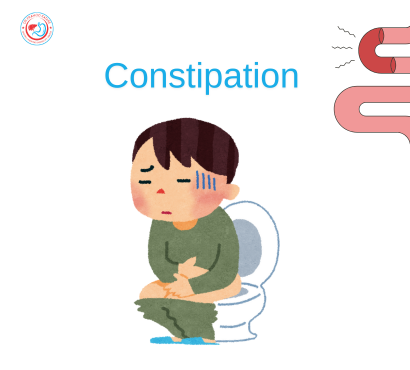Constipation is a prevalent digestive issue affecting individuals across all age groups in India. Characterized by infrequent bowel movements or difficulty passing stools, it can lead to discomfort and impact daily life. Understanding its causes and knowing when to consult a gastroenterologist are crucial steps toward effective management and relief.
Understanding Constipation
Medically, constipation is defined as having fewer than three bowel movements per week. However, it can also involve:
- Hard, dry, or lumpy stools
- Straining during bowel movements
- A sensation of incomplete evacuation
- Abdominal bloating or discomfort
While occasional constipation is common, chronic cases require medical attention to prevent complications like hemorrhoids or fecal impaction.
Common Causes of Constipation
1. Low Fiber Intake
A diet lacking in fiber-rich foods like fruits, vegetables, and whole grains can lead to constipation. Fiber adds bulk to stool and aids in its passage through the intestines.
2. Inadequate Fluid Consumption
Water helps soften stool, making it easier to pass. Insufficient hydration can result in hard, dry stools that are difficult to eliminate.
3. Sedentary Lifestyle
Physical activity stimulates intestinal contractions. A lack of exercise can slow down the digestive system, leading to constipation.
4. Ignoring the Urge to Defecate
Delaying bowel movements can cause stool to become harder and more difficult to pass over time.
5. Medications
Certain medications, including painkillers, antidepressants, and iron supplements, can contribute to constipation as a side effect.
6. Medical Conditions
Conditions like hypothyroidism, diabetes, and irritable bowel syndrome (IBS) can affect bowel regularity.
7. Hormonal Changes
Pregnancy and menstruation can influence hormone levels, affecting bowel movements and potentially leading to constipation.
When to Consult a Gastroenterologist
While lifestyle changes can alleviate occasional constipation, persistent symptoms warrant professional evaluation. Consult a gastroenterologist if you experience:
- Constipation lasting more than three weeks
- Severe abdominal pain
- Blood in stool
- Unexplained weight loss
- A significant change in bowel habits
Gastroenterologists specialize in digestive health and can identify underlying causes, recommend appropriate treatments, and monitor progress.
Diagnosis and Treatment
Diagnostic Approaches
A gastroenterologist may employ various methods to diagnose constipation, including:
- Medical History Review: Discussing symptoms, dietary habits, and medication use.
- Physical Examination: Assessing abdominal and rectal areas.
- Laboratory Tests: Checking for hormonal imbalances or other underlying conditions.
- Imaging Studies: Using X-rays or colonoscopy to visualize the colon.
Treatment Options
Treatment plans are tailored to individual needs and may include:
- Dietary Modifications: Increasing fiber intake through foods or supplements.
- Hydration: Encouraging adequate fluid consumption.
- Exercise: Promoting regular physical activity.
- Medications: Prescribing laxatives or stool softeners when necessary.
- Biofeedback Therapy: Training pelvic floor muscles to improve bowel movements.
- Surgical Intervention: In rare cases, surgery may be required to address structural issues.
Preventive Measures
To reduce the risk of constipation:
- Incorporate high-fiber foods into your diet.
- Stay hydrated by drinking plenty of water.
- Engage in regular physical activity.
- Respond promptly to the urge to have a bowel movement.
- Limit intake of processed foods and caffeine.
Constipation is a common yet manageable condition. By understanding its causes and seeking timely medical advice, especially from a gastroenterologist, individuals can find effective relief and improve their quality of life. Adopting healthy dietary and lifestyle habits plays a crucial role in prevention and management.
FAQs
Q1: Can stress cause constipation?
Yes, stress can impact digestive function, potentially leading to constipation. Managing stress through relaxation techniques and regular exercise can help alleviate symptoms.
Q2: Are over-the-counter laxatives safe for long-term use?
Overuse of laxatives can lead to dependency and worsen constipation. It’s advisable to use them under medical supervision and explore alternative treatments for chronic cases.
Q3: How does aging affect bowel movements?
Aging can slow down digestive processes and reduce muscle tone in the intestines, increasing the risk of constipation. Maintaining a healthy lifestyle can mitigate these effects.
*Note: This Blog is for Informational Purpose, For personalized medical advice, please consult a qualified


